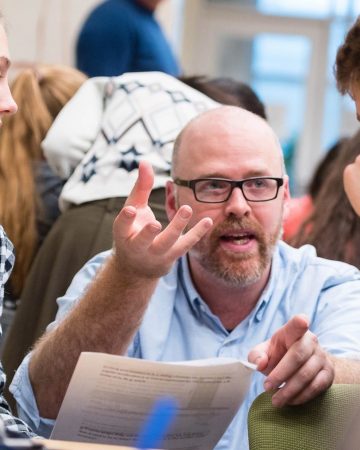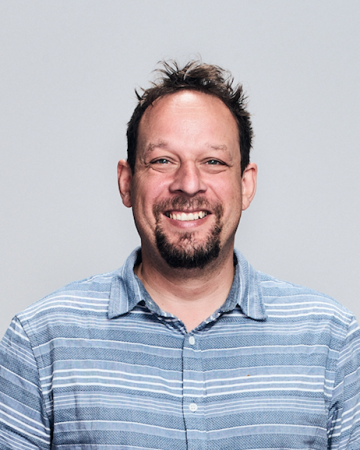Webinars and Talks SALTISE Webinar Series
Bridging Disciplines: Practical Approaches to Interdisciplinary Course Design
In today’s educational landscape, interdisciplinarity has become essential in many college and university programs. Instructors are now asked to design courses that connect ideas across disciplines and to collaborate with colleagues across departments and faculties. Yet, while the goal is to prepare students for an increasingly complex world, educators often face common challenges:
- How should we design effective interdisciplinary courses?
- What distinguishes interdisciplinary approaches from multi- or trans-disciplinary methods?
- What frameworks can guide us in implementing interdisciplinary strategies that truly benefit students?
If you’ve grappled with these questions, join us for this insightful webinar where experts will address these challenges head-on.
Dr. James Charbonneau, Dr. Gregor Kos, and Dr. Firas Moosvi will help clarify what interdisciplinarity means in teaching and learning and share real-world, thoughtfully designed implementations.
- The Science One Program at the University of British Columbia, where a cohort of first-year students studies core subjects together in an interdisciplinary learning environment.
- A Seminar Course at Concordia University, where students engage in two hands-on interdisciplinary projects: a fieldwork transect at a local mine and an Arduino-based air quality monitoring project.
Join us to explore these innovative models. You’ll come away with practical insights and frameworks to help you design interdisciplinary courses that empower students to thrive in a complex world.
Presenter(s)

Firas Moosvi
Lecturer, Department of Computer Science, University of British ColumbiaDr. Firas Moosvi became a Lecturer in the Computer Science department at UBC after three years away teaching at UBC Okanagan. He has many interests in teaching and pedagogy research – they fall under three main areas: 1) incorporating innovative learning technologies in large classes, 2) implementing alternative grading systems in higher education, and 3) conducting the scholarship of teaching and learning with learning analytics data. Most recently, he is looking at how the field of learning analytics can provide insight to surface and reduce inequities in STEM programs. Firas has a deep appreciation for data visualization, active learning, and open source projects.

James Charbonneau
SALTISE Invited Speaker, University of British Columbia
Gregor Kos
Chemistry and Biochemistry, Concordia University, MontrealI am an environmental analytical scientist with a strong background in statistical analysis of observational data. I also employ molecular modelling to understand tropospheric photochemical reactions, especially in an urban air quality context. I have significant field experience in developing and deploying analytical instrumentation in the High Arctic.
I am interested in statistical analysis of medium sized data sets (up to 500,000 observations), including multivariate data analysis of partially dichotomous data. I am very much interested interpreting measurement data for the application and validation of atmospheric chemistry models. My main statistical tools for data analysis are Matlab and R.
My current research focuses on long-term observations of urban pollutants in major Canadian cities. The research is comprised of statistical analysis of 10 year pollution data in Matlab and R.
I also perform multivariate modelling of mid-infrared data for classification of contaminated agricultural commodities. In collaboration with Université Laval I also work on Risk Assessment Modeling for food allergens such as milk protein using Monte-Carlo simulations.
Previously, I was a lead author and chapter coordinator for the Canadian Mercury Science Assessment for the “Emissions” Chapter. I have also conducted a statistical evaluation of gaseous and reactive mercury species data from observations and model results. All mercury work was done in collaboration with Environment Canada.
During field studies in the High Arctic (in Alert, NU and Barrow, AK), I investigated the exchange of volatile organic compounds between snow and air using GC-FID and GC-MS.
Education
Postdoctoral studies (2003-2007), McGill University, Montreal, QC (Prof. Parisa Ariya)
PhD (2003), Vienna University of Technology, Vienna, Austria (Prof. Rudolf Krska)
Visiting scientist (2001), University of Idaho, Moscow, ID (Prof. Peter Griffiths)
MSc (2000), Vienna University of Technology, Vienna, Austria
MSc research (1999-2000), University of Plymouth, Plymouth, UK (Prof. Paul Worsfold)
(Source: https://www.concordia.ca/artsci/chemistry/faculty.html?fpid=gkos#IDX_TEACHING)
Additional Information
- Organizer
-
SALTISE
- Language
-
English
- Fee
-
Free